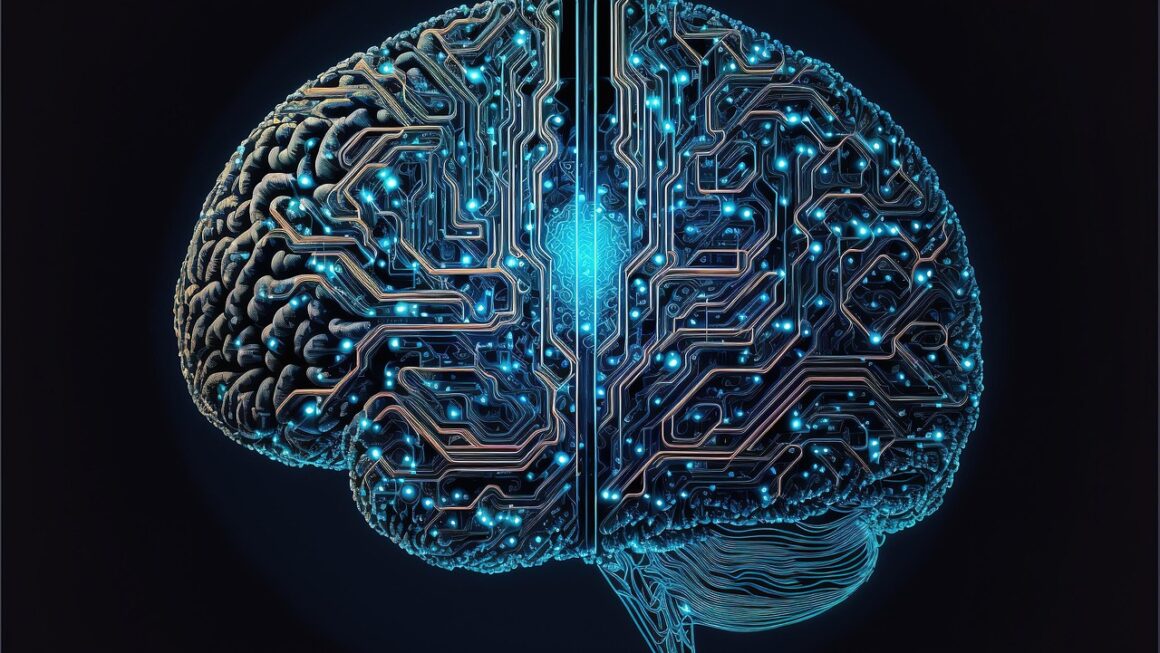Artificial intelligence (AI) is no longer a futuristic fantasy; it’s a present-day reality transforming industries and reshaping how we live and work. From self-driving cars to personalized medicine, AI applications are rapidly expanding, offering unprecedented opportunities for innovation and efficiency. This blog post will delve into various real-world AI use cases, exploring their benefits, applications, and potential impact across different sectors. Get ready to discover the power of AI and how it’s revolutionizing the world around us.
AI in Healthcare: Revolutionizing Patient Care
AI is transforming healthcare by improving diagnostics, personalizing treatment plans, and streamlining administrative processes. Its ability to analyze vast amounts of data quickly and accurately is leading to breakthroughs in disease detection and management.
Enhanced Diagnostics and Early Detection
AI algorithms can analyze medical images like X-rays, CT scans, and MRIs with remarkable precision, often surpassing human capabilities in identifying subtle anomalies.
- Example: AI-powered tools are being used to detect early signs of cancer in mammograms, reducing the need for unnecessary biopsies and improving patient outcomes. A study published in Nature showed that AI systems can achieve comparable or even superior accuracy to radiologists in detecting breast cancer.
- Benefits:
Improved accuracy in diagnosis
Earlier detection of diseases
Reduced human error
Faster turnaround times
Personalized Medicine and Treatment Plans
AI can analyze patient data, including genetics, lifestyle, and medical history, to create personalized treatment plans tailored to individual needs.
- Example: Companies like Tempus are using AI to analyze genomic data to identify the most effective cancer treatments for individual patients. This approach, known as precision medicine, can significantly improve treatment outcomes and reduce side effects.
- Benefits:
More effective treatments
Reduced side effects
Improved patient outcomes
Better understanding of individual health risks
Streamlining Administrative Tasks
AI-powered chatbots and virtual assistants can automate administrative tasks, such as scheduling appointments, answering patient inquiries, and processing insurance claims.
- Example: Many hospitals are implementing AI-powered chatbots to handle routine patient inquiries, freeing up staff to focus on more critical tasks.
- Benefits:
Reduced administrative costs
Improved efficiency
Enhanced patient experience
Increased staff productivity
AI in Finance: Driving Efficiency and Security
The financial industry is leveraging AI to automate processes, detect fraud, and provide personalized financial advice. AI’s ability to analyze complex data sets makes it an invaluable tool for financial institutions.
Fraud Detection and Prevention
AI algorithms can analyze transaction data in real-time to identify and flag suspicious activity, preventing fraud and reducing financial losses.
- Example: Banks are using AI to detect fraudulent credit card transactions by analyzing spending patterns and identifying unusual activity.
- Benefits:
Reduced fraud losses
Improved security
Faster detection of suspicious activity
Enhanced customer protection
Algorithmic Trading and Investment Management
AI-powered trading algorithms can analyze market data and execute trades automatically, often outperforming human traders.
- Example: Hedge funds are using AI to develop sophisticated trading strategies that can adapt to changing market conditions.
- Benefits:
Improved trading performance
Reduced risk
Increased efficiency
Data-driven decision-making
Personalized Financial Advice
AI-powered robo-advisors can provide personalized financial advice to customers based on their financial goals, risk tolerance, and investment preferences.
- Example: Companies like Betterment and Wealthfront are using AI to manage investments and provide financial planning services to individuals.
- Benefits:
Accessible financial advice
Lower fees compared to traditional advisors
Personalized investment strategies
Convenient online platform
AI in Retail: Enhancing Customer Experience
AI is transforming the retail industry by personalizing shopping experiences, optimizing inventory management, and streamlining operations.
Personalized Recommendations and Marketing
AI algorithms can analyze customer data to provide personalized product recommendations and targeted marketing campaigns.
- Example: E-commerce platforms like Amazon use AI to recommend products based on browsing history, purchase history, and customer reviews.
- Benefits:
Increased sales
Improved customer satisfaction
Higher conversion rates
Enhanced brand loyalty
Inventory Management and Supply Chain Optimization
AI can forecast demand, optimize inventory levels, and streamline supply chain operations, reducing costs and improving efficiency.
- Example: Retailers are using AI to predict demand for specific products, ensuring that they have the right inventory in stock at the right time.
- Benefits:
Reduced inventory costs
Improved supply chain efficiency
Minimized stockouts
Enhanced operational efficiency
Chatbots and Virtual Assistants for Customer Service
AI-powered chatbots can provide instant customer support, answer questions, and resolve issues, improving customer satisfaction and reducing the workload on human agents.
- Example: Many retailers are using chatbots on their websites and mobile apps to provide 24/7 customer support.
- Benefits:
Improved customer satisfaction
Reduced customer service costs
Faster response times
Enhanced customer engagement
AI in Manufacturing: Optimizing Production Processes
AI is revolutionizing manufacturing by automating processes, improving quality control, and optimizing production schedules.
Predictive Maintenance
AI algorithms can analyze sensor data from equipment to predict when maintenance is needed, preventing breakdowns and reducing downtime.
- Example: Manufacturers are using AI to monitor the condition of machinery and predict when parts need to be replaced.
- Benefits:
Reduced downtime
Lower maintenance costs
Improved equipment lifespan
Enhanced operational efficiency
Quality Control and Defect Detection
AI-powered vision systems can inspect products for defects with greater accuracy and speed than human inspectors.
- Example: Car manufacturers are using AI to inspect vehicles for defects on the assembly line.
- Benefits:
Improved product quality
Reduced defects
Lower production costs
Enhanced customer satisfaction
Optimized Production Scheduling
AI can analyze production data to optimize schedules, reduce waste, and improve overall efficiency.
- Example: Factories are using AI to schedule production runs based on demand, material availability, and machine capacity.
- Benefits:
Increased production efficiency
Reduced waste
Lower production costs
Improved resource utilization
AI in Transportation: Transforming Mobility
AI is transforming the transportation industry with self-driving cars, optimized logistics, and improved traffic management.
Self-Driving Cars
AI is the driving force behind self-driving cars, enabling them to navigate roads, avoid obstacles, and make decisions without human intervention.
- Example: Companies like Tesla, Waymo, and Uber are developing self-driving car technology.
- Benefits:
Improved safety
Reduced traffic congestion
Increased accessibility for people with disabilities
Enhanced transportation efficiency
Optimized Logistics and Delivery
AI can optimize delivery routes, manage fleets, and improve overall logistics efficiency.
- Example: Delivery companies like UPS and FedEx are using AI to optimize delivery routes and reduce fuel consumption.
- Benefits:
Reduced delivery costs
Faster delivery times
Improved fuel efficiency
Enhanced customer satisfaction
Traffic Management and Congestion Reduction
AI can analyze traffic data to optimize traffic flow, reduce congestion, and improve overall transportation efficiency.
- Example: Cities are using AI to monitor traffic patterns and adjust traffic signals in real-time.
- Benefits:
Reduced traffic congestion
Improved air quality
Shorter commute times
Enhanced transportation efficiency
Conclusion
AI’s transformative power spans across numerous industries, offering innovative solutions to complex problems and driving unprecedented levels of efficiency. From healthcare to finance, retail to manufacturing, and transportation to countless other sectors, the potential applications of AI are virtually limitless. By embracing AI and harnessing its capabilities, businesses and organizations can unlock new opportunities, improve operations, and deliver enhanced value to their customers. As AI technology continues to evolve, its impact on our lives and the world around us will only continue to grow, shaping a future where intelligent machines and humans work together to create a more efficient, productive, and sustainable world.
For more details, visit Wikipedia.
Read our previous post: Altcoin Season: Riding The Crypto Bulls Second Wind




